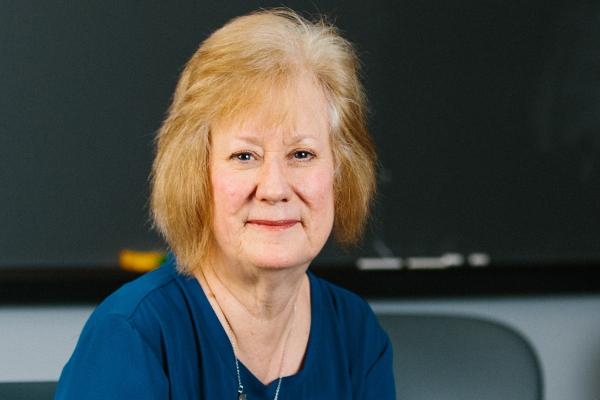
FPG Fellow takes interdisciplinary and family-centered approach in educating generations of professionals serving children with disabilities
Over the last 25 years, FPG Faculty Fellow Harriet Able, PhD, has continuously secured professional development grants from the U.S. Department of Education’s Office of Special Education Programs (OSEP) to equip master’s and doctoral students at the University of North Carolina at Chapel Hill with the necessary skills and knowledge to effectively serve young children with disabilities.
Since 1998, Able — a professor who has been with the UNC School of Education since 1993 — has applied for and received 14 of these grants, totaling more than $12.5 million in funding.
Of those 14 grants, nine provided support and training for master’s-level students — between 30-40 students per grant. Five leadership grants focused on doctoral students. Over the course of one leadership grant, usually five years, six students earned their PhD. And each of those grants took an interdisciplinary approach, funding students not only in education but students from allied health professions – occupational therapists, speech and language therapists, and child psychologists.
The total impact of Able’s grants is hundreds of UNC-Chapel Hill graduate students who were able to learn from experts in child development, special education, allied health, and more. They were taught evidence-based practices, with a focus on family centered and interdisciplinary services. Grant funded students received full tuition support, health insurance, and stipends.
And when they left Chapel Hill, they entered communities across North Carolina and the country carrying Able’s approach with them, to serve children with disabilities and their families.
FPG Technical Assistance Specialist Jessica Amsbary, PhD, who is also program coordinator for the School of Education’s Master of Education for Experienced Teachers (MEdX) program whose students — working early childhood educators — benefit from these training grants and is herself a former advisee of Able, called Able “a brilliant genius” at securing OSEP funding.
“She knows what she needs to do. She does it and continues to do it,” Amsbary said. “The result is, educating and supporting students who go on to be strong, inclusive advocates, strong advocates for children with autism, and highly skilled educators and researchers.”
To ensure a robust data set when applying for a grant, Able cultivates and maintains relationships with both master’s-level and doctoral students as they make their way through their programs.
“A big piece of it comes from her personal connection with students,” Amsbary said. “She stays in touch with them throughout their time in the program. She has the data and the information to prove that they are benefiting, that they’re learning, that they’re making a difference. Then she stays in touch as they continue their careers, so she has follow-up data to add to grants moving forward. She knows the satisfaction rate when students exit the program, and she sends surveys to employers.”
The research outcomes of this long stretch of work center on interdisciplinarity. In a 2017 article for Infants and Young Children that was among the journal’s most-read articles that year, Able and co-authors conducted an extensive focus group study with an interdisciplinary group of early intervention professionals serving young children birth to age five. The focus group members shared dilemmas they experienced related to family-professional and interprofessional conflicts as well as those related to policy and administrative issues. Based on their practice dilemmas, Able expanded a framework for systematic ethical reflection and problem solving based on earlier research she had conducted in the area of ethics and decision-making in health care for young children with chronic illness and disabilities.
“It’s important to me that my work is translational, that research findings are applied to practice, and practice questions are incorporated into future research,” Able said.
“It’s important to me that my work is translational, that research findings are applied to practice, and practice questions are incorporated into future research,” Able said. “My goal is to make my research accessible, relevant, and useful to families and teachers of young children and youth with disabilities. Interdisciplinary collaboration has been the keystone of my work because that is how professionals must interact when best servicing children and youth who are at risk or who have disabilities and their families.”
Read more about Able's incredible work and impact in the full story from the UNC School of Education here.
